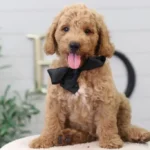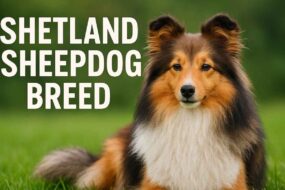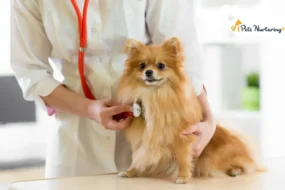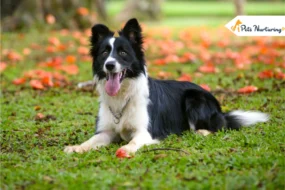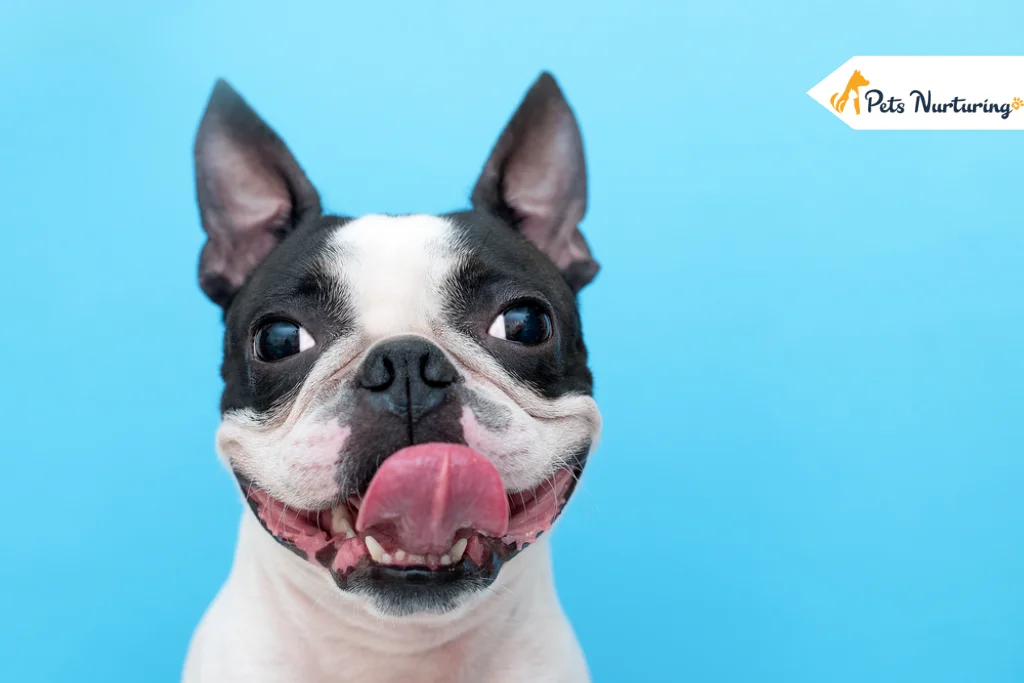
Boston Terrier dog is known as the American Gentleman. Their black and white coat makes them look like they’re wearing a tuxedo. Not just stylish, they’re also known for their polite, smart, and affectionate nature, making them ideal family pets.
Moreover, these dogs enjoy human company and are eager to please their owner. They also get along well with kids, other dogs, and even in households with cats. If you are planning to buy a Boston home, read our guide to know more about them.
In this guide, we’ll share details about their history, characteristics, personality, training, grooming, health, and more.
Breed Overview
Boston Terrier Dog Information
Breed Group: Non-Sporting
Height: 15 to 17 inches
Weight: 10 to 25 pounds
Lifespan: 11 to 13 years
Coat: Short and smooth
Color: Black and white; brindle and white; black, brindle and white; seal and white, etc.
Temperament: Polite, smart, affectionate
Grooming Needs: Low
Hypoallergenic: No
Origin: United States
History
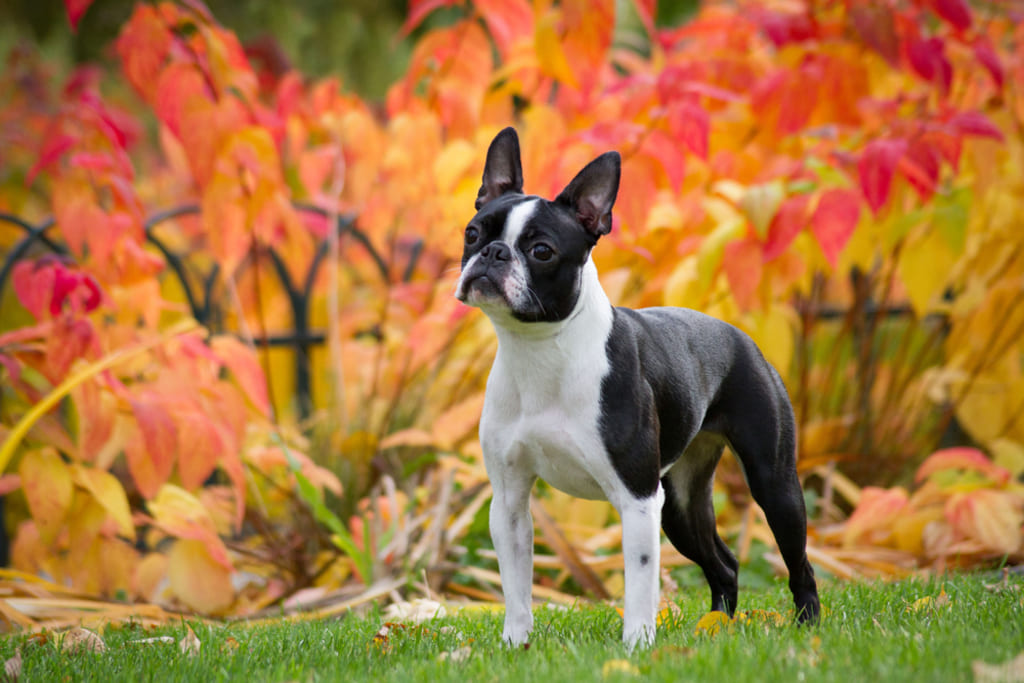
The story of the Boston Terrier dog dates back to the 1860s when a gentleman called William O’Brien bought a bulldog-white English terrier mix named Judge from England. Later, Judge was sold to Robert C. Hooper, who is recognized as the father of the Boston terrier breed.
Judge, weighing approximately 32 pounds, was bred with Edward Burnett’s female dog, Gyp (also known as Kate). She was a sturdy, white bulldog-type dog from Southboro, Massachusetts, weighing about 20 pounds. This pairing laid the foundation for the breed, with subsequent breeders refining it into the Boston Terrier we know today.
Originally larger, weighing up to 44 pounds, the Boston Terrier was bred down in size from the fighting dogs of the terrier and bull types.
The Boston Terrier Club was established in 1891 and gained recognition from the American Kennel Club in 1893. It is among the few breeds originating in the United States.
While the Boston Bull once had an aggressive nature, it now tends to prefer human company over confrontation with other dogs. However, some males may still display territorial behavior.
Since 1922, Boston University has used Rhett the Boston Terrier as its mascot, and the Boston Bull has been the official state dog of Massachusetts since 1979.
Boston Terrier Size and Appearance
The Boston Terrier size is small with a square-shaped head. They have perky ears and a slightly curved neck. Their muzzle is short and typically smooth, with either an even or slightly lower jaw.
One characteristic of Boston Bulls is their big, dark, round eyes, set apart widely. It gives them a comical look and makes them one of the cutest dog breeds in the world.
Boston Terriers naturally have short tails, typically no longer than 2 inches. These tails may be straight or have a corkscrew or curled shape.
As per international breed standards, Boston Bulls should weigh no more than 25 pounds and stand between 15 to 17 inches tall at the shoulders. The American Kennel Club categorizes them into three weight classes:
- Under 15 pounds
- 15 to 20 pounds
- 20 to 25 pounds
| Characteristic | Male | Female |
| Height | Up to 17 inches | Up to 16 inches |
| Weight | 15 to 25 pounds | 12 to 20 pounds |
Coat and Color
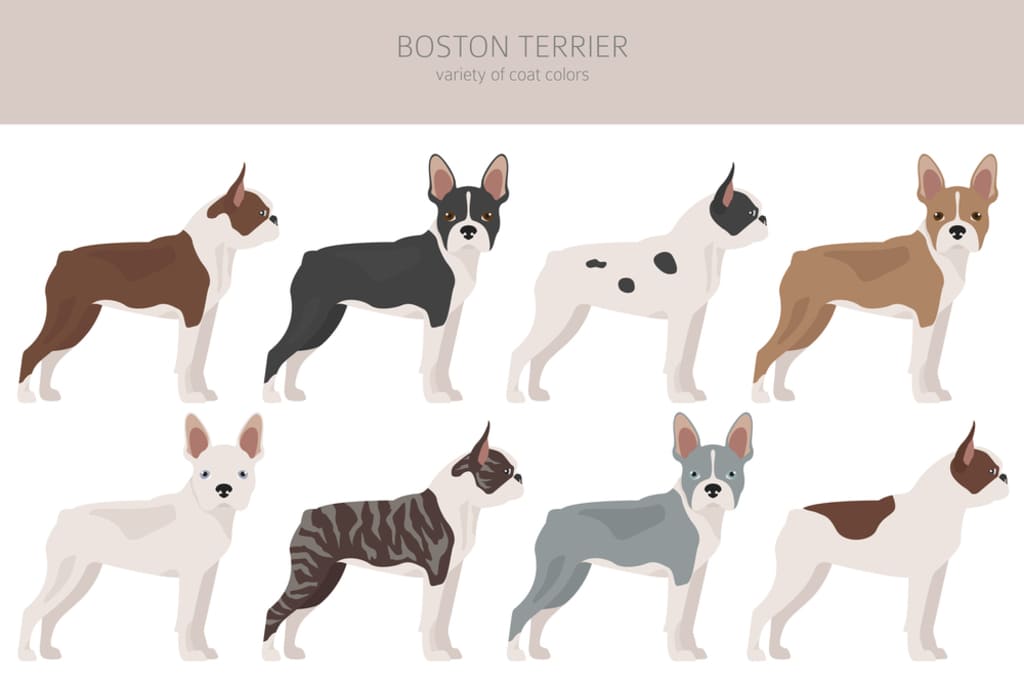
Boston Terrier dogs have short and smooth coats, which makes them easy to groom. These dogs have a unique appearance because of their coat color and pattern. It makes them look like they are wearing a tuxedo. This is why they are called “the American Gentleman.”
According to the Boston Terrier Club of America, breeding standards require a coat that is brindle, black, or seal, evenly marked with white. You can easily find black or brindle Boston Terriers. In fact, it is one of the most popular brindle dog breeds.
White markings typically appear on areas like the chest and form a stripe between the eyes. Black-and-white is the most common color, but you can also find red, brown, and blue Boston Terriers.
As per the American Kennel Club, their markings are divided into two categories:
- Required, including white on the chest, muzzle, and between the eyes.
- Desired, which adds a white collar and markings on the legs.
It’s important to note that Boston Terrier colors cannot be completely solid, like black, liver, gray, or white. Beware of breeders who claim to have these “rare” colors for sale.
Boston Terrier Characteristics and Temperament
Boston Terriers puppies are known for their friendly, happy, and affectionate nature. Their playful demeanor and sense of humor contribute to their delightful personalities. They typically get along well with people, including children and strangers, and often make good companions for other pets.
Despite their small size, Boston Bulls are energetic dogs that excel in activities like agility. They are intelligent and can learn tricks easily, although they may sometimes be stubborn when it comes to obedience.
It’s important to note that Boston Terriers have a flat face, a characteristic of brachycephalic breeds. Because of this, they can be prone to overheating and should be given breaks to rest when necessary.
To sum up their characteristics and behavior,
- Boston Bulls are very affectionate
- These dogs are friendly and good with kids
- They also get along with other pets
- Boston Terriers need regular exercise
- They are very playful
- These dogs have average intelligence
- They have moderate trainability
- Boston Bulls can be vocal
- They don’t shed much
Health and Nutrition
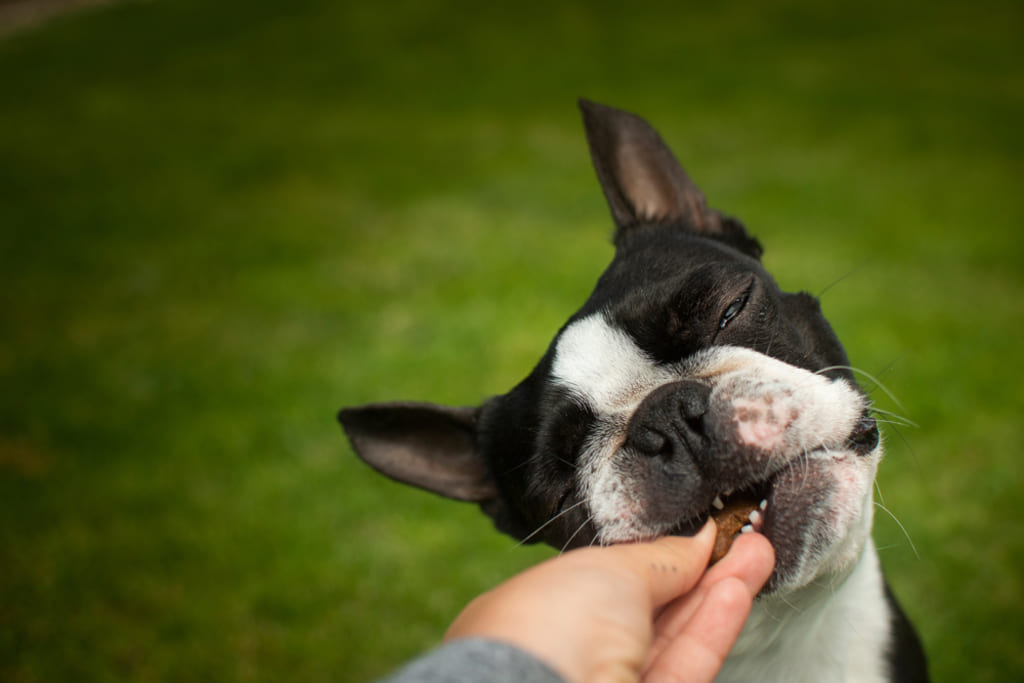
Feeding Requirement
Boston Terriers puppies require a high-quality and balanced diet. It should include dry food designed for little breeds to aid in chewing. Always provide your dog with fresh water and feed them a high-quality, balanced diet.
Feeding Schedule
Boston Bulls have a fast metabolism and must be fed two to three times a day. Focus on diets developed for small breeds.
Portion Control
The amount of food your Boston Terrier puppy needs depends on factors like the food type, weight, brand, age, and activity level. Consult your vet or check the food label for recommended serving sizes.
Be cautious with treats and extra food. Many Boston Bulls adore food and may beg for snacks. However, too many treats can lead to weight gain, which can be significant for this small breed.
Nutritional Advice
While there are no specific supplements tailored for Boston Terriers puppies, they may benefit from supplements promoting skin and joint health.
Common Health Problems
Boston Terrier dogs can be susceptible to certain health issues related to their unique build. Understanding these conditions can help you manage any health concerns effectively and ensure your Boston Terrier’s well-being.
Brachycephalic Syndrome
Boston Bulls, like other flat-faced breeds, are prone to brachycephalic syndrome. This can lead to breathing difficulties, overheating, and reduced exercise tolerance.
Surgery may be necessary to improve breathing, and it’s crucial to monitor their activity in hot and humid weather.
Eye Disease
Boston Bulls are predisposed to eye problems such as cataracts, glaucoma, and corneal ulcers. Regular veterinary check-ups and prompt attention to any signs of eye discomfort are essential. Additionally, due to their prominent eyes, take precautions to prevent eye injuries during playtime.
Patellar Luxation
This condition, common in Boston Terriers puppies, involves the kneecap slipping out of place due to abnormalities in the knee joint. Weight management and joint support can help alleviate symptoms, with surgical correction as a possible treatment option.
Deafness
Deafness, which can be present from birth in one or both ears, is more common in Boston Bulls compared to many other dog breeds.
Understanding and addressing these health issues can help ensure a happy and healthy life for your Boston Terrier puppy.
Boston Terrier Behavior and Training
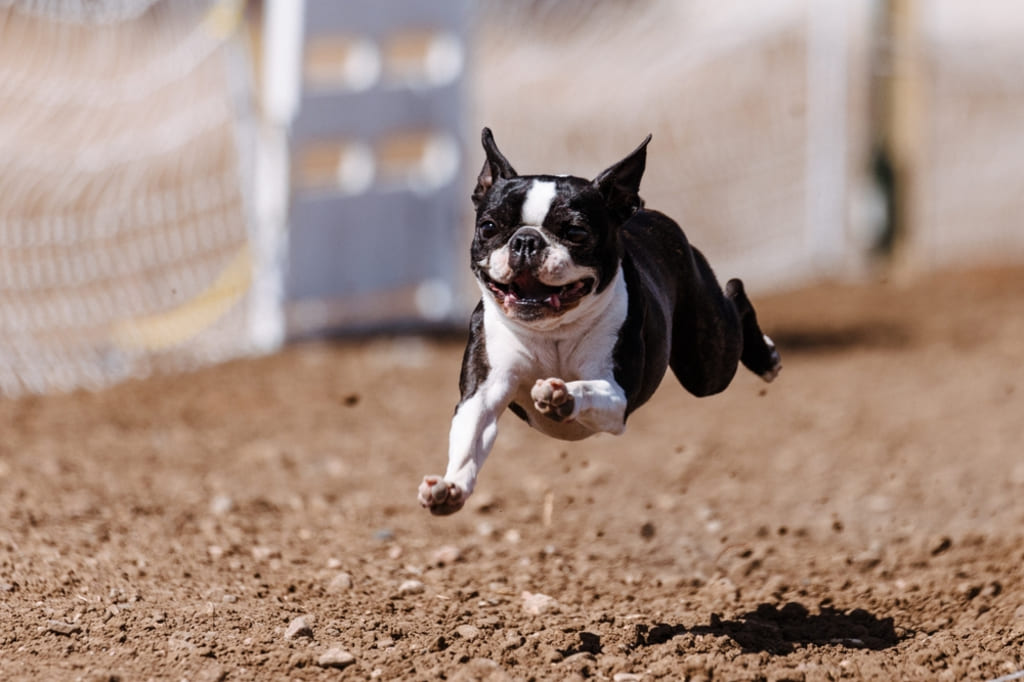
Boston Terrier dogs are lively and love engaging with their family, often enjoying games. They need moderate activity and generally get along well in multi-pet households. They’re typically good with children when properly trained, as long as the kids are gentle.
These dogs can be vocal for attention and may enjoy chewing, but training can help manage these Boston Terrier behaviors. Start training and socializing your Boston Bull as early as possible.
Introduce your dog to different people, other dogs, and various environments to build their confidence and ease in various situations.
Use positive reinforcement, like praise and treats, as your Boston Terrier puppy can be sensitive to harsh corrections. Stay consistent with your commands, as they are eager to please and respond well to training.
Exercise Needs
Boston Bulls are fairly energetic and benefit from around an hour of exercise each day. Daily walks, games like puzzle toys and fetch, and supervised playtime in a secure area are all suitable activities.
Engaging in dog sports like agility and rally can also help burn off their energy. It’s important to involve them in activities with their humans, as they may become bored and develop problem behaviors if left alone.
Additionally, due to their flat faces, Boston Bulls are prone to breathing issues. Discuss this with your vet and learn how to recognize signs of labored breathing during exercise.
Grooming Needs
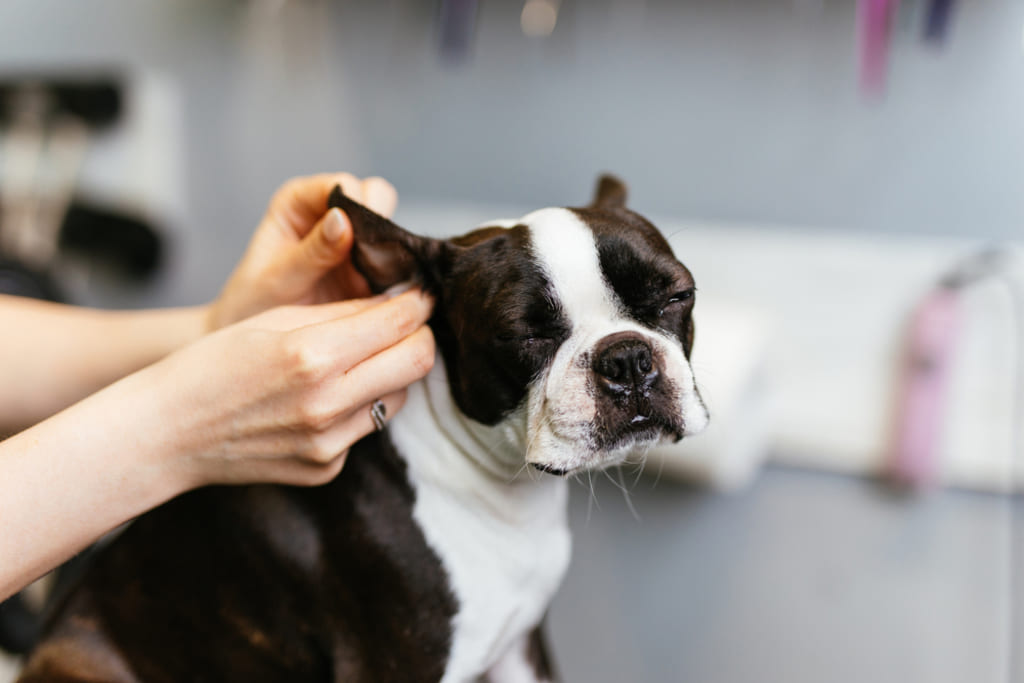
Even though Boston Bulls are low-maintenance dogs, you need to groom them regularly.
Skin Care
Boston Terriers typically don’t need special skin care. Brushing their coat weekly with a grooming mitt or soft brush helps keep their coat healthy and reduces shedding.
Coat Care
Boston Bulls have short, silky coats that shed in moderation. Because of their short fur, they can get chilly easily, so consider a jacket or sweater in cold weather.
Teeth Care
Brush their teeth regularly with a dog toothbrush and toothpaste to maintain oral health.
Eye Care
Since these dogs are predisposed to eye issues and injuries, it’s important to inspect their eyes regularly for any problems or irritation. Be cautious during playtime to prevent accidents. Your vet may recommend keeping a dog eye rinse handy for flushing out debris.
Nail Care
For nail care, trim their nails every few weeks to prevent overgrowth.
Ear Care
Routine ear cleaning is normally all that’s needed to care for your dog.
Are Boston Terriers Hypoallergenic?
Boston Bulls shed moderately and aren’t hypoallergenic. If you’re allergic to pet dander, you might experience symptoms like sneezing and watery eyes around them.
Price
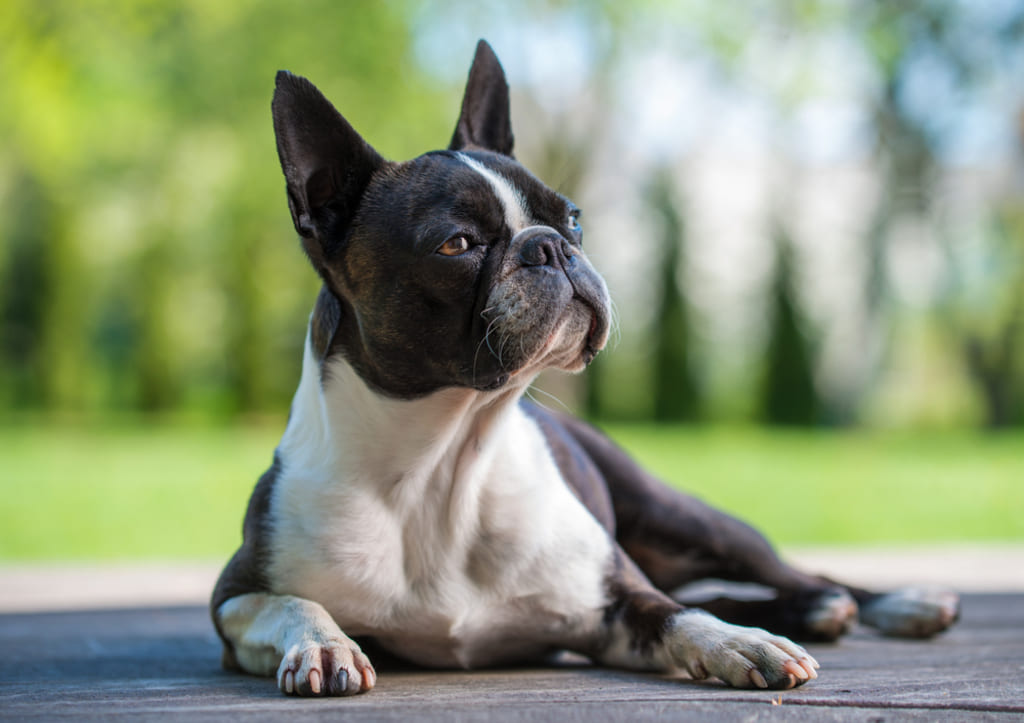
Boston Terrier puppies for sale can cost anywhere between $1000 and $2000 on average. However, for a puppy with top breed lines and an exceptional pedigree, the price may range from $3,000 to $5,000.
Boston Terrier Life Span
On average, Boston Terriers life span is 11 to 13 years. However, this can change based on factors like diet, genetics, exercise, and healthcare. With proper care and a healthy lifestyle, some Boston Bulls may live beyond 15 years.
FAQs
You can search online and look for breeders that offer Boston Terrier for sale in your area.
Yes, Boston Terrier adoption can be a great choice. You can check at local animal shelters or rescue groups to find one.
Although similar, Boston Terriers are slightly leaner, have pointier ears, and are a bit more energetic compared to French Bulldogs.
These are generally not aggressive. However, remember that they can be territorial because of their Terrier genes.
Conclusion
If you are thinking about buying a Boston Terrier, our guide will help you make the right choice. These dogs are friendly, low maintenance, and can adjust well to any type of living condition.
However, there are some factors you must consider, like their health. They are prone to breathing and joint problems, so it is important to address these issues. You also need to make time for their exercise and training requirements.
Lastly, remember to select a trusted breeder that follows ethical breeding practices. It will help you to prevent any genetic health problems.
Explore Further:







